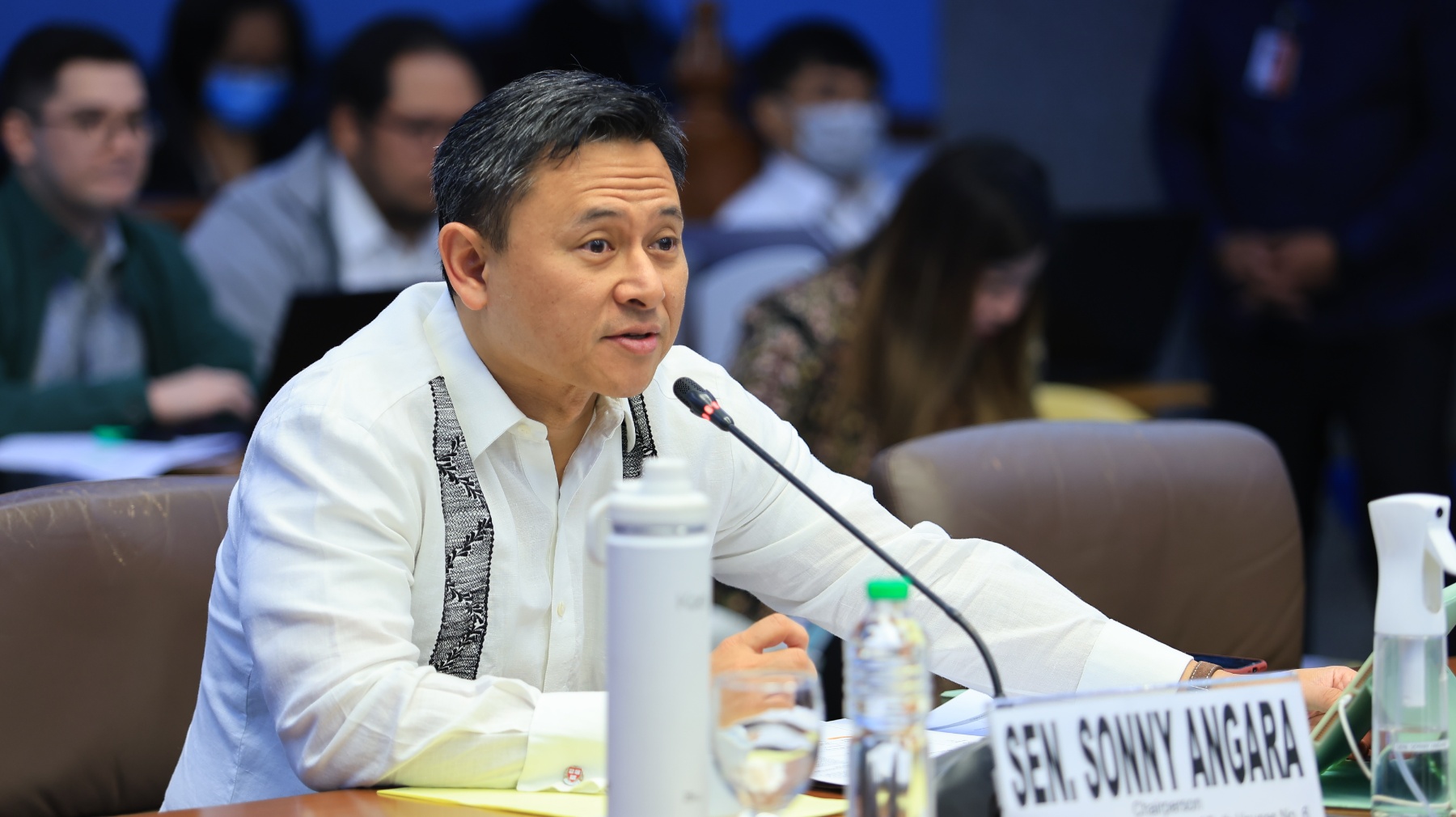Angara to DepEd: Basic education will be closed to foreign investment
Senator Juan Edgardo “Sonny” Angara on Tuesday, March 5 assured the Department of Education (DepEd) that the basic education would be closed to foreign investment as it is important to preserve the country’s values and instill nationalism among the youth.

This, after Education Assistant Secretary Francis Bringas reiterated DepEd’s stand during the continuation of the Senate’s hearing on the Resolution of Both Houses No. 6, which seeks to amend economic provisions of the 1987 Constitution.
DepEd had earlier expressed concern that such amendments could be detrimental as allowing foreign entities to teach could affect the implementation of the curriculum and the cultivation of learners’ sense of nationality and identity as Filipinos.
Education officials also pointed out opening the basic education to foreign ownership could be a national security risk as it may expose educational institutions to external influence.
RBH 6 primarily seeks to lift the 40 percent limit on foreign ownership of three vital industries in the country, in one particular, education. The other two were public services and advertising.
Angara pointed out that the measure does not intend to liberalize basic education—only higher and vocational and technical education.
“So rest assured, that we will not open up basic education,” Angara said in respoinse to Bringas and other DepEd officials present during the hearing.
“At the outset of the educational institutions session, we already said the intention was not to open up basic education (due to the) importance of values formation, nationalism, among others, exactly what you said,” the senator added.
In an interview after the hearing, Angara said they will amend the wordings in the measure to make things clearer to the stakeholders.
“We will amend it kasi medyo na-realize namin na hindi masyadong clear. Parang ang interpretation is baka puwedeng galawin din yung basic education (We will amend it because we did realize it was not very clear. The interpretation seems to be suggesting that indeed the basic education can be opened to foreign ownership),” Angara pointed out.
“Hindi naman yun ang (But that is not the) intention. Ang intention talaga is (really is to open) higher education, tertiary education, technical and vocational education (to foreign investors),” the lawmaker pointed out.
Meanwhile, the Commission on Higher Education (CHED), Technical Education and Skills Development Authority (TESDA) and the Department of Labor and Employment (DOLE) are in full support for the opening of higher education institutions (HEIs) to foreign investment.
CHED Chairman Prospero De Vera said the commission “interposes no objection to the proposal to amend the Constitution to open up control and administration of [HEIs] to foreign nationals.”
De Vera also emphasized the potential benefits such as providing students more options to broaden their studies, internationalizing higher education, facilitating university-to-university linkages between local and foreign universities, and increasing foreign student enrollment.
“But (what is) more important, we are happy that this is being discussed because it allows us to reopen discussions on the framework for higher education, particularly on how to improve quality in higher education, how to ensure that our Philippine universities are competitive, and the kind of interventions and policies that the government must put in place to ensure access to quality higher education,” De Vera explained.
But the CHED chief cited the need for an enabling law that would provide incentives for foreign universities and ensure balance between Philippine and foreign institutions.
TESDA, on the other hand, underscored the need to reframe the country’s economic policy to keep up with the demands of globalization while at the same time, upholding “Filipino First” policy.
“The TVET (Technical and Vocational Education and Training) sector has to keep abreast with the modern educational needs to be relevant and responsive to the workforce needs of the community, the industry and the economy in general,” TESDA Deputy Director General Rosanna Urdaneta pointed out.
“TESDA supports this amendment and welcomes foreign participation and cooperation to reinforce the educational and technological needs in higher-level TVET qualifications,” Urdaneta said.
DOLE Undersecretary Felipe Egargo Jr. also agreed that amending certain restrictive provisions in the Constitution would be crucial in generating employment opportunities for Filipinos and advancing economic development.
Egargo pointed out it is the policy of the state to promote full employment and equality of employment opportunities to all Filipinos.
“In order to carry out these objectives, the state has to work hard in inviting numerous foreign investors to invest or establish enterprises in the country that will eventually generate more jobs opportunities for the Filipinos,” Egargo said.
“Hence, the proposal to amend certain restrictive economic provisions of the 1987 Philippine Constitution…will allow foreign businesses to breathe into a more conducive investment landscape,” the DOLE official reiterated.
The Philippine Chamber of Commerce and Industry (PCCI) also voiced its support for RBH 6, saying it will “support any constitutional amendments, but limited only to economic provisions that will enhance the competitiveness of the Philippines and attract more local and foreign investors, and enhance the ability of our country to participate more effectively in global trade.”
PCCI executive vice president Ferdinand “Perry” Ferrer said PCCI believes integrating 21st century skills into the educational system is crucial for the continued growth of businesses and reduce the need for costly training programs.
“So we support any measures that can bring in international partners in providing 21st century skills into the country, into our 3.4 million students. This will ensure the continued trajectory of our businesses and growth in our businesses,” Ferrer said.